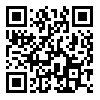Volume 1, Issue 2 (December 2015)
Elderly Health Journal 2015, 1(2): 42-45 |
Back to browse issues page
Download citation:
BibTeX | RIS | EndNote | Medlars | ProCite | Reference Manager | RefWorks
Send citation to:



BibTeX | RIS | EndNote | Medlars | ProCite | Reference Manager | RefWorks
Send citation to:
Pakgohar M. Factors Associated with Postmenopausal Women’s Decisions to Seek Treatment for Urinary Incontinence . Elderly Health Journal 2015; 1 (2) :42-45
URL: http://ehj.ssu.ac.ir/article-1-37-en.html
URL: http://ehj.ssu.ac.ir/article-1-37-en.html
Department of Geriatric Nursing and Reproductive health, School of Nursing and Midwifery, Tehran University of Medical Sciences, Tehran, Iran
Abstract: (3707 Views)
Urinary incontinence (UI) is highly prevalent crossculturally and also a costly chronic condition (1), with high prevalence among postmenopausal women (2). International Continence Society defined UI as any complaint about involuntary urine leakage (3). UI significantly affects patients (4); avoiding its treatment might have physical, psychosocial, and economic consequences (5), and finally decreased quality of life (6). The negative effects of UI on the quality of life can be seen more among postmenopausal women (7, 8). Despite the availability of numerous treatments which their effectiveness are well investigated worldwide, nearly half of community dwelling women living with UI do not seek professional treatment (9, 10). This essay aimed to review the present knowledge on how women with UI experience seek professional help which is important to enhance its understanding by health care providers and enable women to ask for help as well.
Type of Study: Research |
Subject:
Special
Received: 2015/07/23 | Accepted: 2015/10/2 | Published: 2015/12/15
Received: 2015/07/23 | Accepted: 2015/10/2 | Published: 2015/12/15
| Rights and permissions | |
 |
This work is licensed under a Creative Commons Attribution-NonCommercial 4.0 International License. |






